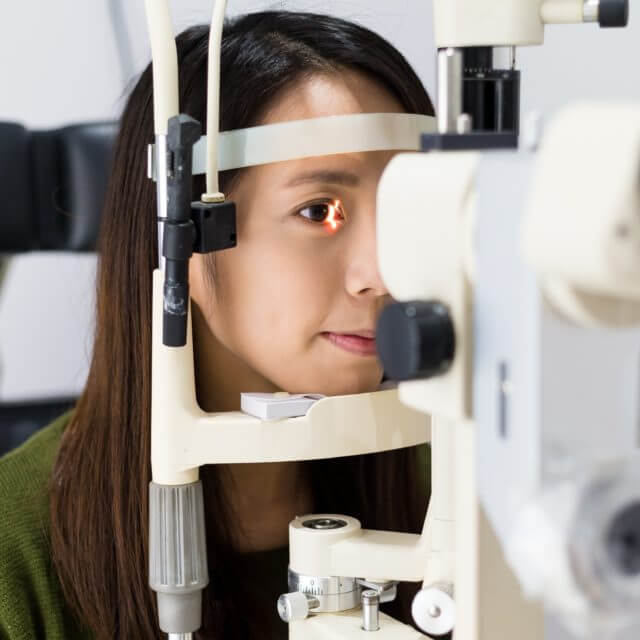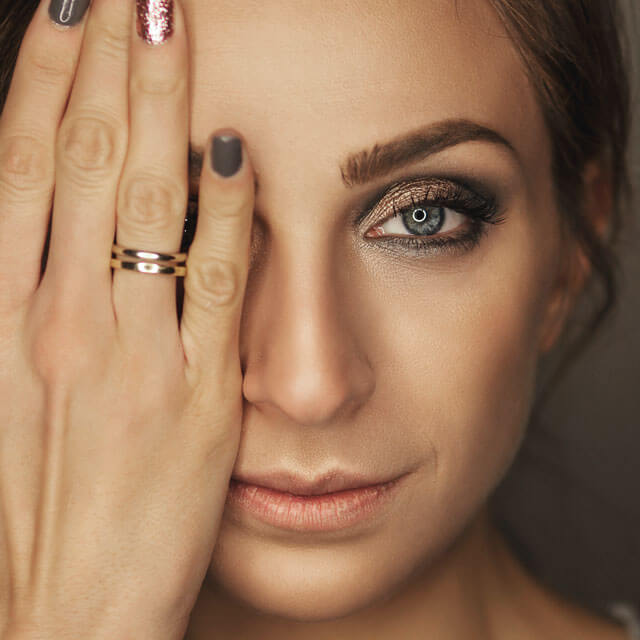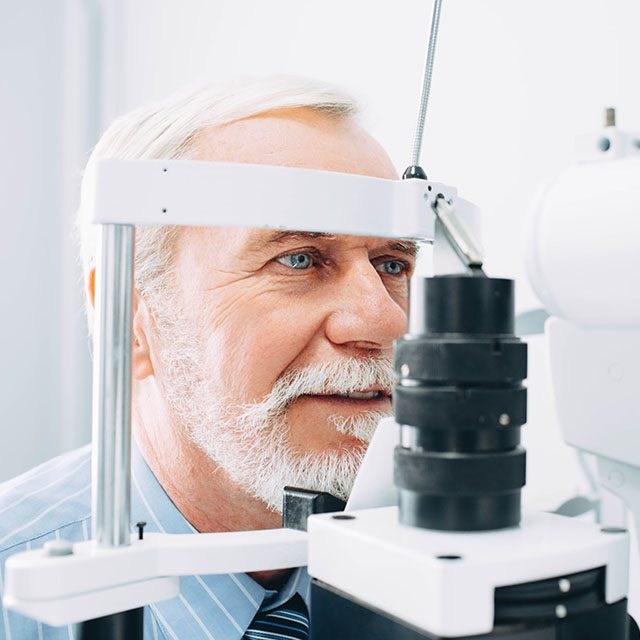EYE EXAMS
Artisan Optics
See us. See Better.
If you've not had an eye health exam in the past 12 months, it's time to make an appointment. Our doctors are in-network with most insurances and accepting new patients.
Our Optometrists Keep Your Eyes Healthy
As adults, we monitor our overall health but don't often think about the health of our eyes. We depend on our eyes for almost everything we do, from reading to driving, to hobbies and favorite outdoor activities. Taking good care of our eye health each and every year is the best way to safeguard our vision for years to come. Scheduling an appointment for a comprehensive eye health exam with one of the eye doctors here at Artisan Optics is the first step toward maintaining eye health.
If you're new to the area, haven't had a comprehensive eye exam in the last year, or looking for a new eye doctor, it's time to schedule an appointment with Artisan Optics.
At Artisan Optics every comprehensive eye health exam includes a free MiBo Thermoflo screening, which tests for the presence of Dry Eye Syndrome. This completely painless MiBo Thermoflo scan an important eye health screening for all adults.


How often do I need an eye exam?
Eye exams are an important part of a preventative healthcare plan. Just like appointments with a primary care physician (medical doctor) each year for an annual check-up, comprehensive eye health examinations should be scheduled every 12 months as well.
Eye exams are much more than a prescription for glasses or contact lenses. There are many systemic health conditions that are first detected during an eye exam, before any noticeable symptoms. Serious vision conditions can be diagnosed and treated before irreversibly affecting vision – including permanent vision loss.
A yearly eye exam with one of the eye doctors at Artisan Optics is the first step to maintaining your best vision possible. Our doctors are in-network with most insurances and accepting new patients.
When do kids need pediatric eye exams?
Just like well checks with the pediatrician or check-ups with the pediatric dentist, there is a recommended schedule for children’s eye exams with a pediatric eye doctor. According to the American Optometric Association (AOA) all children should have their eyes examined at 6 months of age, at age 3 and again at the start of kindergarten. Once in school, it is important to have comprehensive yearly eye health exams.
Children with existing vision problems or risk factors should have their eyes examined more frequently. Common risk factors for vision problems include:
- premature birth
- developmental delays
- turned or crossed eyes
- the family history of eye disease
- history of eye injury
- other physical illness or disease
If you missed scheduling the recommended eye exams, it’s not too late. Call to schedule an appointment with one of our residency-trained pediatric eye doctors and get your child up-to-date on vision care.


From Eye Exam to New Lenses
How does the eye doctor find my prescription?
Our eye doctors in Boise, Idaho, will check your vision thoroughly to provide you with an accurate prescription. If you wear eyeglasses or contact lenses, your visual acuity will be assessed both with and without your corrective lenses.
You’ll be asked to read from a basic eye chart of numbers and letters, which tests your eyesight at various distances. The normal measurement for eyes with no refractive error is 20/20. We’ll also use a phoropter to check carefully for astigmatism, nearsightedness, and farsightedness. This procedure involves having you look through a series of lenses, and you’ll need to give feedback on which ones give the clearest vision. With the aid of a retinoscope, we’ll measure how light focuses on your retina with each of the different lenses.
Altogether, these tests will provide us with the information necessary to issue you a highly accurate vision prescription. All that’s left for you to do is choose a pair of attractive frames from our eyewear collection or purchase from our selection of premium contact lenses, and you’ll see and look sharp in no time!
Importance of routine eye examinations
Another thing to ponder is the fact that the eye may be predisposed to certain problems, similar to other parts of the body. Most people have heard of the most familiar disorders of the eye, such as glaucoma and diabetic retinopathy. Since these ailments usually display no signs or symptoms in their early stages, it’s vital that you depend upon preventive health care to avoid many common eye diseases. This is best accomplished by having regular eye examinations.
Our Boise eye doctors will have the ability to look for diseases like glaucoma, to ensure that you can take suitable steps to treat the disease before it progresses. Even though these diseases are more prevalent in elderly individuals, it is vital to note that eye disease can also occur at an earlier age.
Vision testing vs. complete eye testing
It’s important to differentiate between a basic vision screening and an in-depth eye exam. A lot of people trust that by having a registered nurse or primary care doctor conduct a vision screening, that this is sufficient. However, vision screening may only include reading letters off a chart at various distances. There are many more evaluations and checks that must be performed to inspect for other diseases such as cataracts, macular degeneration, Dry Eye Syndrome or Computer Vision. Only comprehensive eye examinations done on a consistent schedule can ensure that your eyes are being kept safe!

